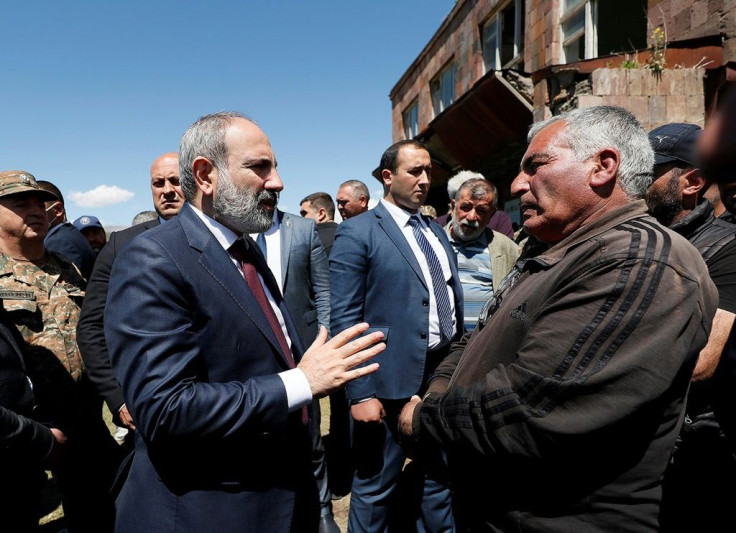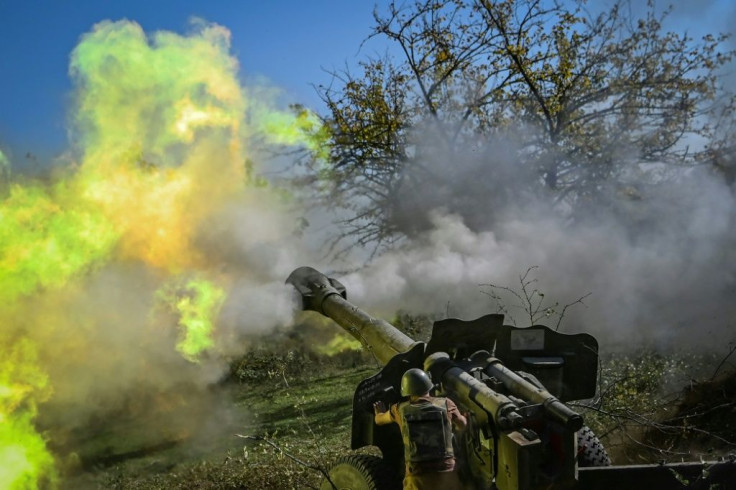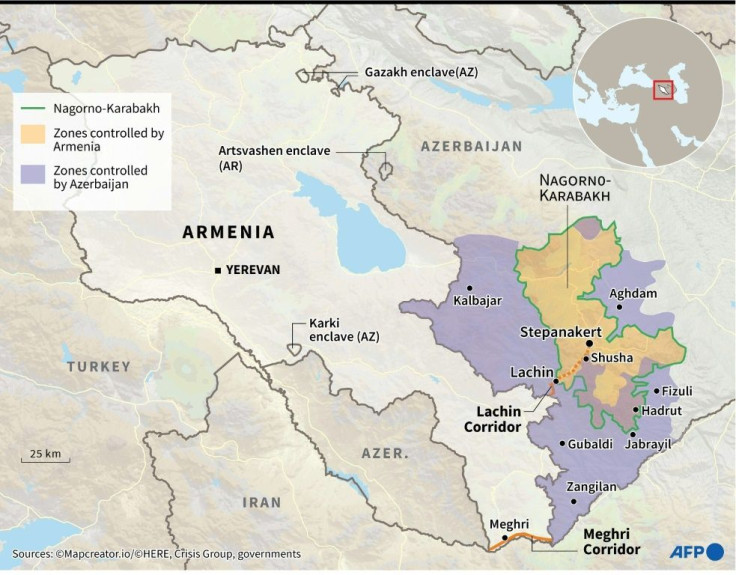Armenia Says Six Soldiers Captured By Azerbaijan At Border
Six Armenian soldiers were captured by Azerbaijan Thursday, the latest in a series of escalating border incidents after last year's war over the disputed Nagorno-Karabakh region, with the United States calling on both sides to resolve the situation "urgently and peacefully".
The clash comes at a delicate time for Prime Minister Nikol Pashinyan ahead of snap elections next month. He called for international observers on the border between Armenia and Azerbaijan.
The Armenian defence ministry said that its forces were carrying out engineering work in a border region when Azerbaijan's army "surrounded and captured six servicemen".
Azerbaijan's military however branded the Armenian soldiers as a "reconnaissance and sabotage group".
It said they had "tried to mine supply routes leading to Azerbaijan army positions" and "were surrounded, neutralised and taken prisoner".

"The situation is tense and explosive," Pashinyan said during his visit to the eastern Gegharkunik region, where the soldiers had been captured.
Speaking separately at a meeting of his security council, the prime minister suggested the deployment of international observers be placed on the border between Armenia and Azerbaijan.
The US expressed concern about the escalating tension and called for the release of the six soldiers and for the two sides to return to the negotiating table.
"We call on both sides to urgently and peacefully resolve this incident," State Department spokeswoman Ned Price said in a statement.

"We also continue to call on Azerbaijan to release immediately all prisoners of war and other detainees, and we remind Azerbaijan of its obligations under international humanitarian law to treat all detainees humanely."
Washington would consider any movements in the non-demarcated part of the border area as "provocative and unnecessary," the statement said.
In France, the foreign ministry similarly urged both sides "to show the utmost restraint and to refrain from any provocation."
This was just the latest of a string border incident between the historic rivals stretching back over several months and further strains the ceasefire brokered by Russia last year.
Last year, the two ex-Soviet countries in the Caucasus region fought for six weeks for control of Nagorno-Karabakh, an ethnic Armenian region in Azerbaijan that had been controlled by separatists for decades.
Some 6,000 people were killed in the conflict, which ended after Moscow brokered an agreement between Yerevan and Baku that saw Armenia hand large sections of territory it had controlled for decades to Azerbaijan.

Among the recaptured territories was Kelbajar district, which lies across the border from Gegharkunik, the site of the latest incident.
The ceasefire, monitored by some 2,000 Russian peacekeepers, has largely held, but tensions persist.
A senior Armenian army representative said there were some 1,000 Azerbaijani soldiers on Armenian soil near Gegharkunik.
For now, he said, incidents were being resolved peacefully, but "if a decision is taken to use force, then they will be destroyed".
Azerbaijan said that Armenia had deployed tanks to the area.
Armenia said one of its soldiers was killed earlier this week after shooting broke out with Azerbaijan's forces, an incident Baku denied responsibility for.
Earlier in May, Armenia accused Azerbaijan's military of crossing its southern border to "lay siege" to a lake shared by the two countries.
And all of this comes in the run-up to snap parliamentary polls in Armenia on June 20, which Pashinyan announced under pressure from opposition protesters.
For months they have staged rallies demanding the prime minister's resignation.
They hold him accountable for what many in Armenia believe was a humiliating defeat at the hands of Azerbaijan's army, and for agreeing to hand over swathes of territory to Azerbaijan.
Pashinyan, 45, says he had no choice but to concede or see his country's forces suffer even bigger losses. Fresh elections are the best way to end the post-war political stalemate, he says.
Earlier this month, Pashinyan said Armenia and Azerbaijan were in Russian-mediated talks on the delimitation and demarcation of their shared borders.
He also said the two governments could discuss territorial swaps between the two countries.
Russia's role as the broker between the two countries has largely come at the expense of Western powers such as France and the United States. All three are part of a mediating group that had tried but failed for decades to find a lasting solution to the conflict.
Ethnic Armenian separatists in Nagorno-Karabakh broke away from Azerbaijan around the collapse of the Soviet Union in a conflict that claimed the lives of some 30,000 people and displaced many more.
© Copyright AFP {{Year}}. All rights reserved.





















